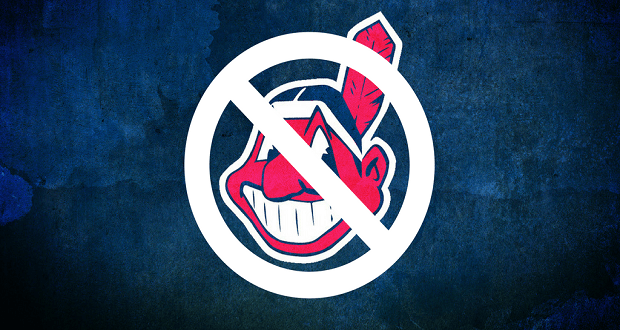Last week’s post in this series was about privilege — what it is and how we leverage it. As I said in that post, leveraging privilege is the action step that comes after knowing yourself, acknowledging and listening to the “other”, and recognizing inequity. It’s the action step after much reflection, but what’s the ultimate goal? Speak truth to power from your point of privilege.
What truth? Whose truth? To wrap up this #StayWoke… Live Inclusively series, this post will focus on knowing—and speaking—your truth.
As I hope you’ve gathered over the course of this series, staying woke means staying aware. It means staying aware of who you are, who you and/or society deems the “other”, and more importantly, who others know themselves to be. It means staying aware of your (perhaps unintentional) participation in and perpetuation of inequitable systems. Finally, it means acting on that awareness to encourage and facilitate greater inclusion in your spaces (aka being an ally, accomplice, friend, partner in solidarity, etc.).
If staying woke requires that you act or that you speak, you have to know what to say. In my experience specifically as a white ally in racial justice spaces, I’ve learned a lot—sometimes the hard way—about when and how to speak from my points of privilege. I’ll be the first to say that learning when to decenter the (my) dominant narrative has been a process of stepping up and messing up. It’s been a process of being willing but sometimes ignorant. So, it’s also been a process of asking for help.
The most consistent piece of advice I’ve been given is this: Speak from your own experience. Do not pretend or presume to know how others feel, whether they look or identify similarly to you or not. Do not tell another’s story without their permission. Always listen first. Then, speak from your “why” in order to encourage others to find theirs.
To that point, what is your “why”? Why do you care about Diversity and Inclusion? Why do you care about equity? Why do you care about social justice? Why does it matter?
Your “why” could be that you care about equity as a matter of principle, but more than likely, that belief is backed by some experience or encounter with difference or with injustice that propelled your concern. Is it a cultural concern, or, depending on where you come from, is your concern counter-cultural? Is it because you’ve felt victimized by unjust systems, or is it because you have friends or family whose stories and lives matter to you but don’t seem to matter to the wider culture? Is it both?
Know your “why” so you can share your story and encourage others to do the same. I’ll share a bit of mine:
I am a white, upper-middle class, college-educated woman. I grew up in a white suburb, went to predominantly white private schools, and generally occupied predominantly white, wealthy, Christian spaces growing up. I have benefitted from inequitable systems throughout my entire life, and there is no reason that I should be an advocate for racial and social justice – except that I was fortunate enough to meet people and have experiences that forced me to encounter and grapple with difference.
I am naturally curious – a collector of stories and information, if you will. At the urging of parents who stressed that I was very lucky and who intentionally taught me empathy (yes, it is learned skill), I spent a significant amount of time as a kid volunteering at places like soup kitchens and shelters with school and church friends. For many of my teenage years, I fell into the “white savior” mindset, coming down from my perch of privilege to help the poor while asking the perennial question: Why do bad things happen to good people?
But gradually, the people I met knocked me off my perch and welcomed me into their worlds. They met me where I was, and encouraged me to be better.
That’s when I began collecting information and stories about those who did not grow up benefitting in the same way from the systems in which we live. Mentors and friends called me to more inclusive behaviors. In the process, I learned about myself, and I learned that the world is a more interesting, challenging, richer place when it includes more perspectives and more people.
I have more to learn—and always will—but I stay woke because of the people who knocked me off my perch and welcomed me into a messier, more beautiful world. I stay woke because my friends lives and stories matter to me. I stay woke because I am more of myself and a better community member when I think and act inclusively. I stay woke because I believe in a more inclusive world.
What’s your why? Look back at your cultural checklist, and then ask yourself these questions:
- What experiences have I had that have led me to broaden my worldview?
- Who are the people who facilitated that growth?
- What are my blind spots when it comes to diversity, inclusion, equity and justice?
- What does my vision of a more inclusive world (or home, work place, church, gym, etc.) look like?
- How can I communicate my story and my vision to people in a way that facilitates transformation?
Tell your story, and others will follow. (Feel free to leave your reflections in the comment section below!)
And finally, whatever your reason is, take the pledge to #StayWoke… Live Inclusively.



![The Buzz: The [Black] Dolls Are in Town](https://theinclusionsolution.me/wp-content/uploads/2024/04/Young-Black-girl-with-Black-baby-doll-440x264.jpg)
















Beautiful end to a timely and powerful series!
Great job, Caroline!! 🙂
Caroline – I have been totally inspired by this series and am now woke more than I ever was before. Thank you for sharing your stories, your vulnerability, your journey thus far. Much appreciated and very impactful.